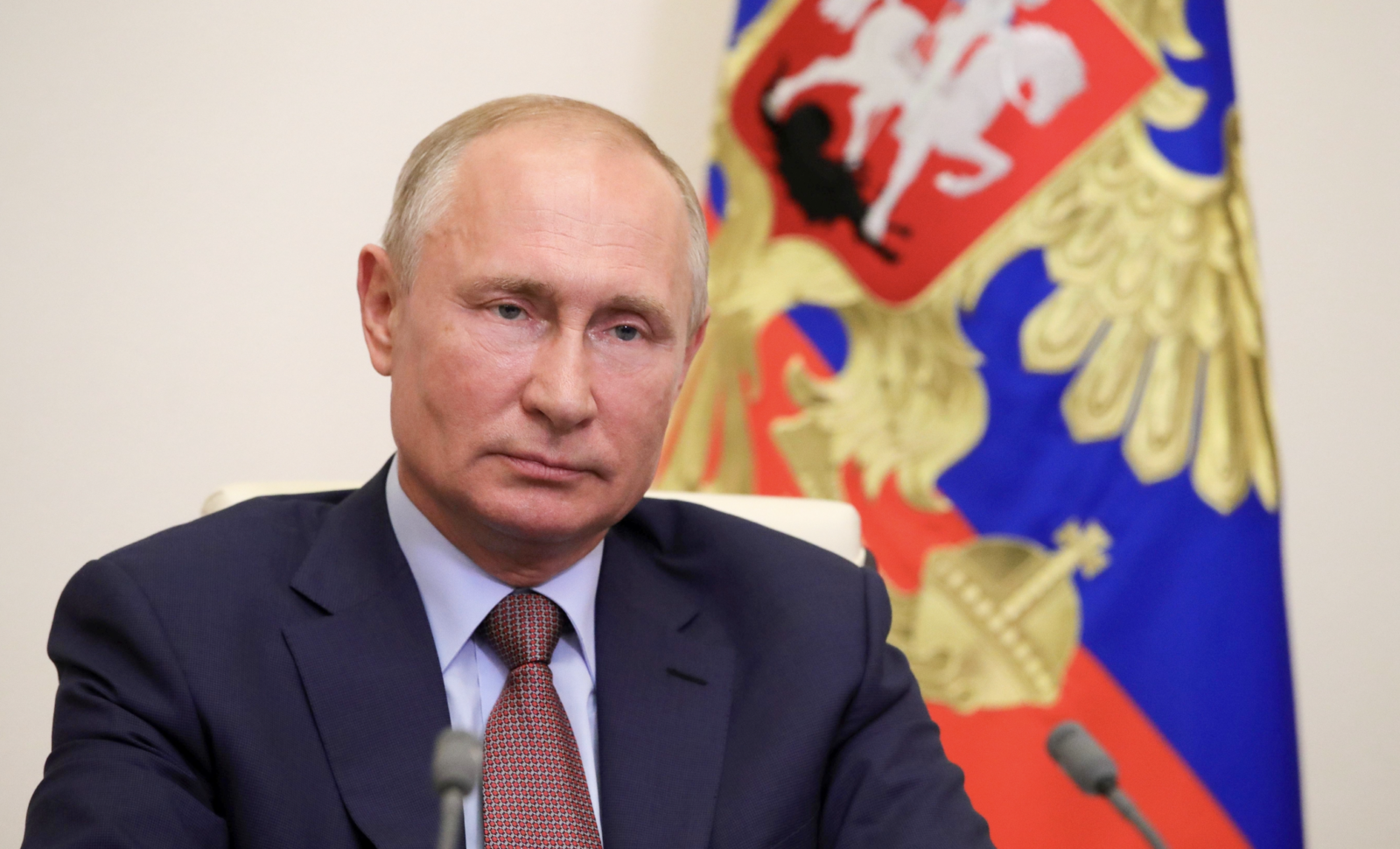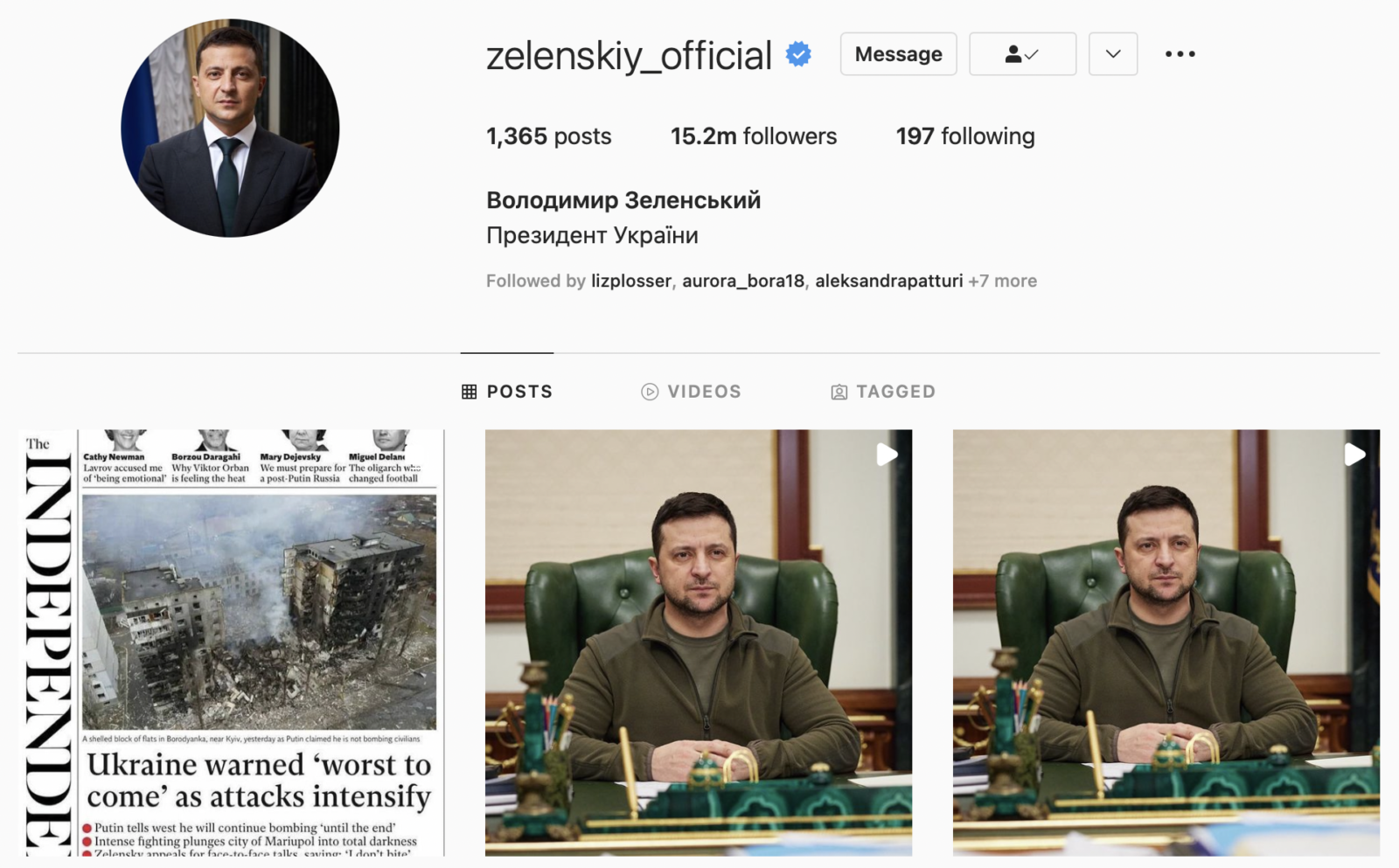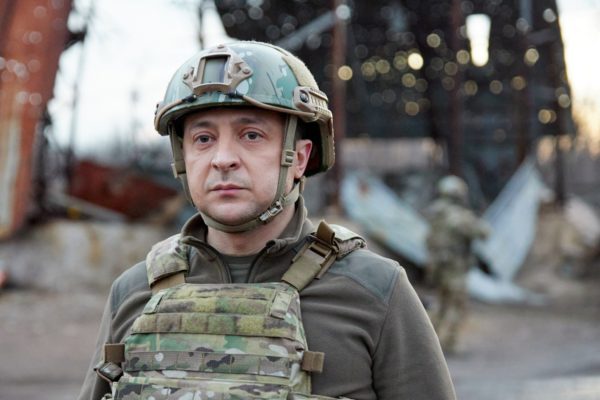The Media Weekly: The Good, The Bad, and the UGC
[Main Image: President Zelensky visits front positions of the army in the Donetsk region, 17.02.2022- Photographer RM/Shutterstock.com.]
On International Women’s Day, we look back on a week that has seen the best and the worst of media. In Russia, Roskomnadzor has banned free and accurate domestic reporting on the invasion of Ukraine, sparking an exodus of output from the country. On the other hand, we’ve also seen an international industry united, rallying around its Ukrainian counterparts and continuing its ongoing mission to deliver truth to the world. We here take a concise look at some of The Good, The Bad, and the UGC…
The Good
The BBC
- Last Wednesday, the BBC published figures showing that millions of Russians were tuning into BBC News, in an attempt to access accurate information about the war.
- By Friday, it had gone a step further, taking to Twitter to remind users that the station was available in Ukrainian and Russian via the dark web.
- As events played out on the ground, BBC Reporter, Clive Myrie, provided an unrivalled first-hand account of the situation in Ukraine across both broadcast and social media.
- As of Tuesday, the company has released a further statement, announcing its intention to resume reporting in Russia, after a brief halt.
Axel Springer
- Europe’s largest publishing house mobilised itself on the information front quickly, providing €500,000 to assist the activities and investigative reporting of Ukraine-based media outlets.
- Within almost the same breath, the company also announced that President Volodymyr Zelensky has been honoured with the 2022 Axel Springer Award.
The Fix
The Fix has also been particularly vocal in its efforts to support Ukrainian media, temporarily rebranding its Twitter account as a support hub, and working in partnership with key partners to support Ukrainian colleagues, both in Ukraine and neighbouring countries:
‘To date, we have received approx. 1.5 million euros in support for the Ukrainian media sector overall, both via GoFundMe and directly (note: this does not include the over 1.3 million euros donated to Kyiv Independent, with whom we are also closely collaborating).’ Full update.
The Pope
On Friday, Pope Francis took to Twitter to express his support for an industry working diligently to report the truth:
“I would also like to thank the journalists who put their lives at risk to provide information. Thank you, brothers and sisters, for this service that allows us to be close to the tragedy of that population and enables us to assess the cruelty of a war. #Ukraine #Peace“
Additional
The positive response to this negative situation has been so significant that we couldn’t even begin to log the full thrust of industry support that has been placed behind Ukraine’s media and beyond. From PressReader opening up its platform freely in the country, to wider efforts from institutions like CEO Club Ukraine raising money for those fighting on the ground, the resolve of the forces of good has been strong.
The Bad

Of course, for those living in Russia, a free press is unfortunately something that is becoming increasingly inaccessible. Not content with merely blocking news and social media outlets, Putin on Friday signed a decree completely banning free speech in the country, as his own citizens continue to take to the streets to protest his actions.
Speaking to Ivan Kolpakov, Editor in Chief of Meduza, one of Russia’s most popular independent media outlets, about the blocking of its own platform in the country, The Washington Post captured the fantastical nature of the new law accurately:
‘On Friday morning it finally happened. But then Russia’s parliament went further, passing a law banning what it considers “fake” news about the military, including any rhetoric that calls the invasion of Ukraine an “invasion” — the preferred language is “special military operation” — with a potential 15-year prison sentence. Putin signed it into law hours later.’ Full article.
Perhaps sensibly, many outlets and journalists have now either fled, or suspended reporting in Russia, with BBC Director-General Tim Davie releasing a statement saying: “This legislation appears to criminalise the process of independent journalism.”
The UGC

In a sense, this is the first war to be fully reported on social media. And what I mean by that is, while we’ve seen user generated content placed at the forefront of war reporting – and war documenting – for many years now, we have in recent weeks seen a genuine unification of mainstream and social media reporting.
The afore-mentioned Clive Myrie’s documentation on Twitter provides one example, and perhaps even more revealing in this respect are the actions of President Zelensky himself.
We’ve seen him broadcasting directly from Kyiv many times in recent weeks, and this morning I woke up, turned on the news, and saw him speaking directly from his office in Ukraine. The juxtaposition of broadcast and social media in this clip is notable, as the President at one point puts down his phone and begins to address the world via a more traditional televised format.
He will today be speaking live to the UK House of Commons by way of video link, and this again will no doubt – for a few hours at least – dominate the televised, written, and social news cycles alike.
A word of caution though of course, as we move towards a more unified digital media world, and all the potential that the might of such an alliance can bring in the fight against fake news and press censorship: There is still an awful lot of misinformation circulating out there on the socials, from every corner of the earth, and corroborative fact checking – from multiple, reputable sources – remains key.









